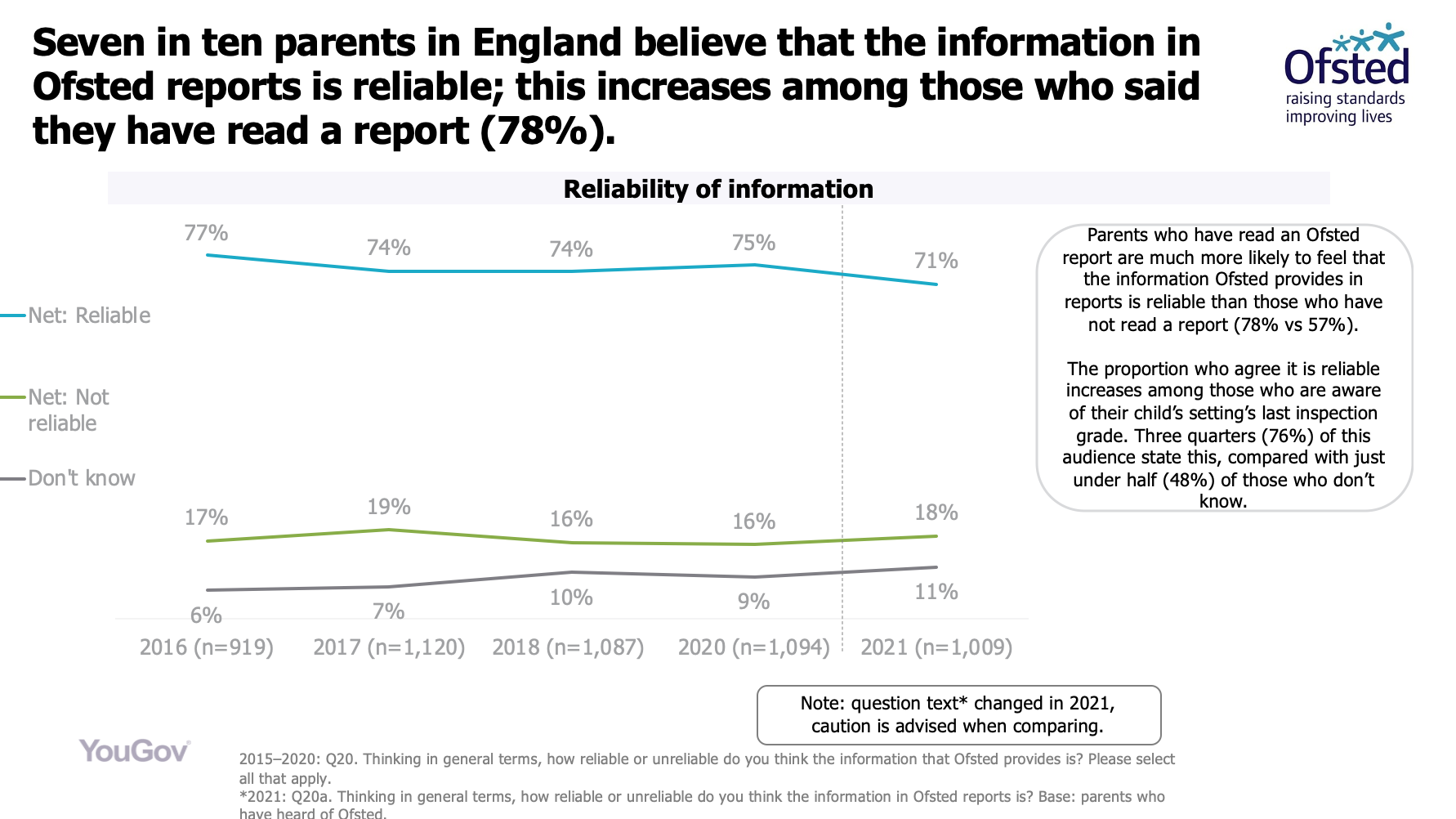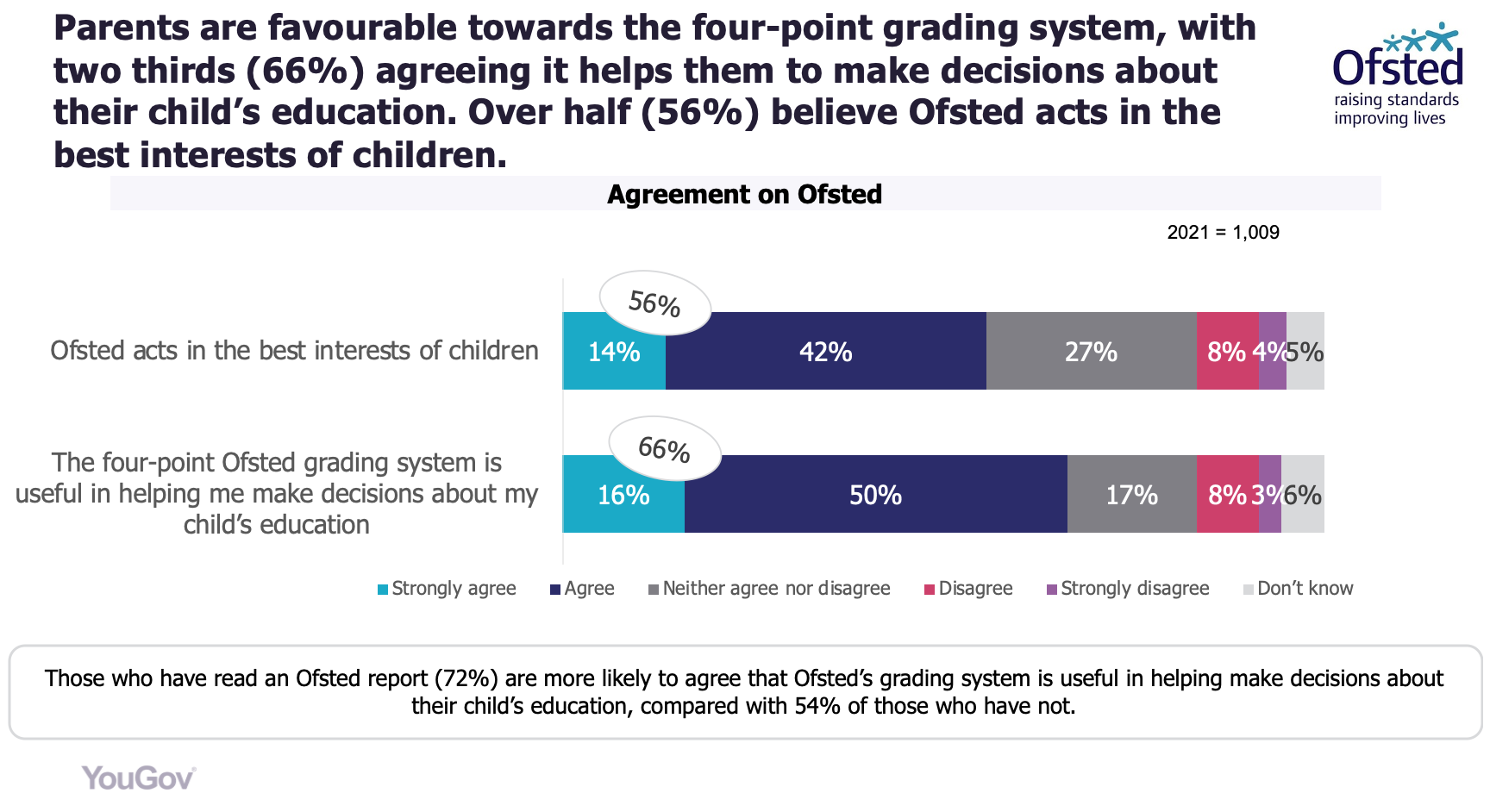Revealed: what parents really think about Ofsted

Ofsted has published the latest findings from its annual parents’ survey, which was carried out online between 9 and 26 March this year by YouGov.
It included responses from 916 parents of school-age children, and found that most parents view Ofsted as a reliable source of information, although some question if it focuses on the right things.
Covid: Nine in ten parents backed schools’ response to the Covid crisis, Ofsted told
Ofsted: Schools to go longer between inspections as statutory window set to be extended
Exclusive: Spielman wants more time as Ofsted chief inspector
Here are its key findings:
Most parents think Ofsted is reliable
The majority of parents told YouGov that they believe that Ofsted reports are reliable.
The latest survey shows that 71 per cent of parents believe this, increasing to 78 per cent among those who had read a report.
However, the proportion of parents who think Ofsted reports are reliable has declined slightly over recent years, from 77 per cent in 2016 to 71 per cent now.
Eighteen per cent of respondents said that Ofsted reports were not reliable and another 11 per cent said that they didn’t know.
Some parents think the watchdog asks about the wrong things
The survey breaks down why some parents think that Ofsted reports are not reliable.
The most commonly cited reasons are that the school or college will be different during an inspection or that inspections are too short to provide a meaningful picture.
And there has been an increase in the proportion of people who think that inspectors aren’t looking at the right things.
For the past two years, 50 per cent of those who think Ofsted is unreliable have chosen this as a reason, up from 40 per cent and 43 per cent in the two years before this.
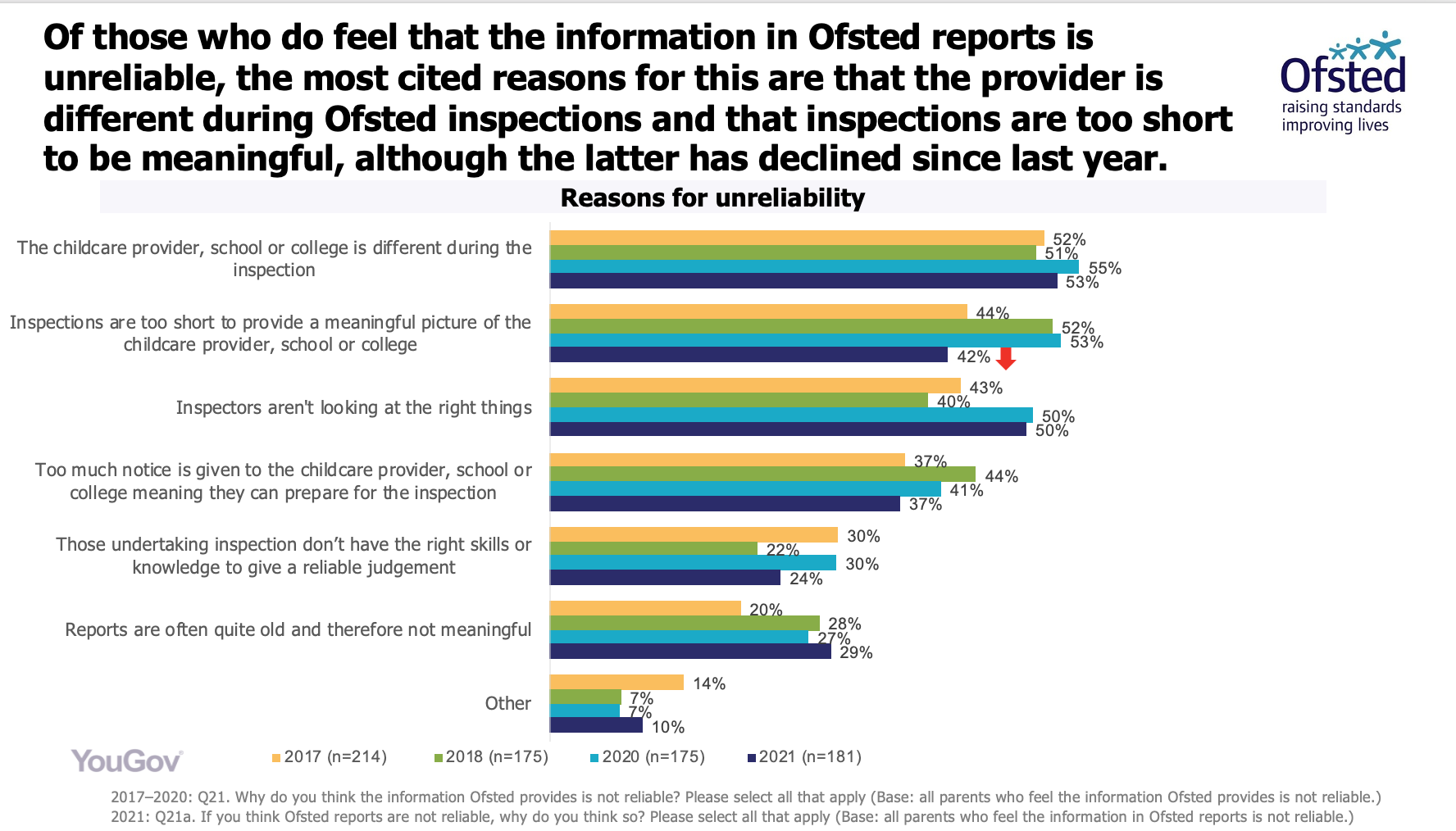
Most parents think Ofsted raises standards
The survey shows that the proportion of parents who think that Ofsted’s work improves standards in education has remained similar to last year at just under two-thirds.
YouGov data shows that 64 per cent of parents agreed with this in 2021, compared with 65 per cent last year.
Just over one in ten (11 per cent) disagreed that Ofsted raised standards while another 21 per cent said they neither agreed nor disagreed.
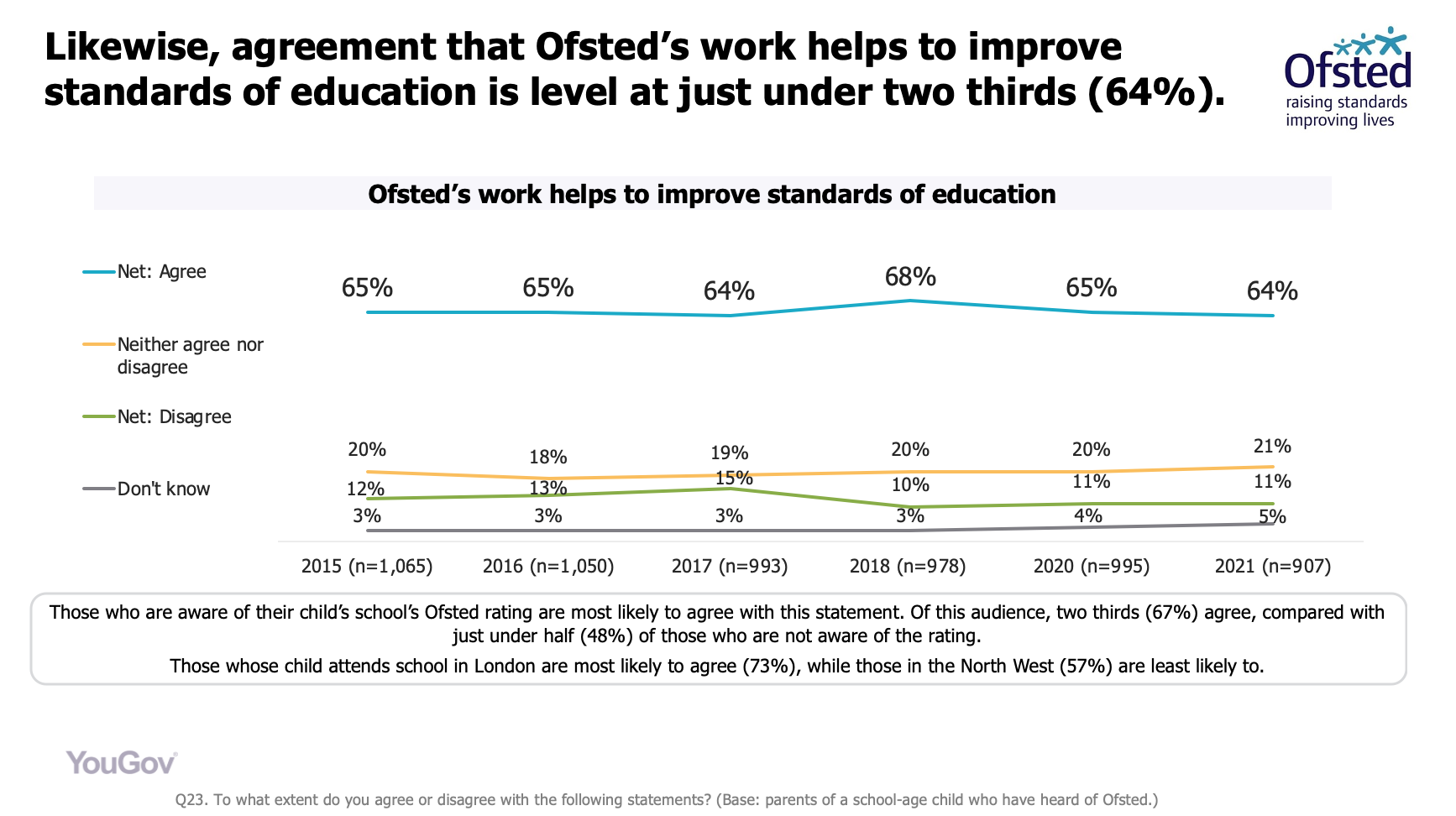
One in five parents do not see Ofsted as independent
There are more parents who view Ofsted as acting independently from government than those who do not.
Thirty-five per cent of those surveyed either agreed or strongly agreed with the statement that the watchdog acts independently.
Around one in five parents (19 per cent) either disagreed or strongly disagreed with this.
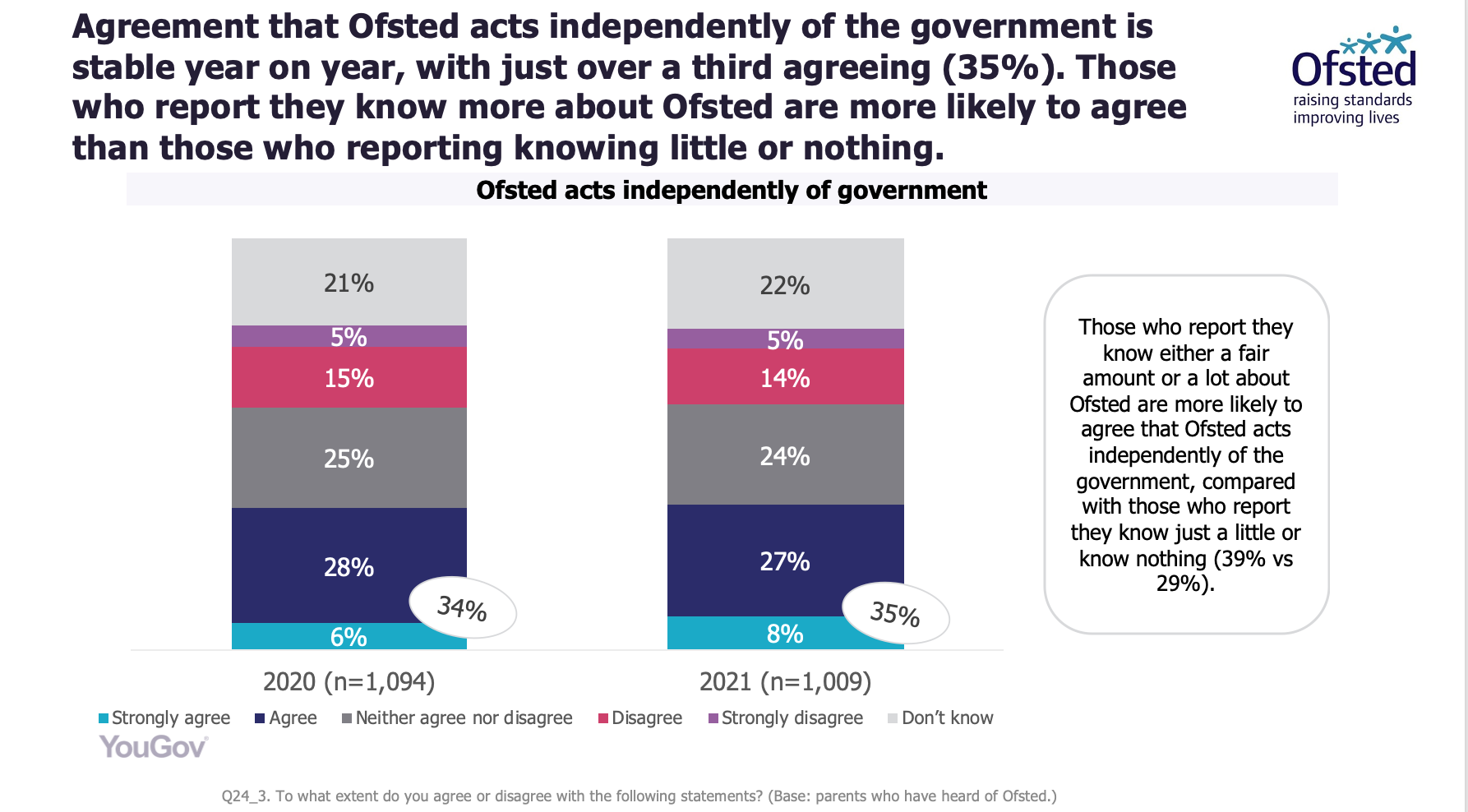
The findings show that 8 per cent strongly agree that Ofsted acts independently and another 27 per cent agree.
The survey also found that 24 per cent neither agreed nor disagreed and 22 per cent said that they didn’t know.
Most parents think Ofsted acts in the best interests of children
The survey found that just over half of parents believe Ofsted acts in the best interests of children.
It found that 14 per cent of respondents strongly agreed with this and 42 per cent agreed with it.
Of the remaining respondents, 27 per cent neither agreed nor disagreed, 8 per cent disagreed and 4 per cent strongly disagreed.
Most parents like the inspection ratings
Ofsted’s survey found that most parents said that the four-point grading inspection system was useful in helping them to make decisions about their children’s education.
Sixteen per cent strongly agreed with this and another 50 per cent agreed, according to the latest survey findings.
Only 11 per cent of respondents disagreed.
You need a Tes subscription to read this article
Subscribe now to read this article and get other subscriber-only content:
- Unlimited access to all Tes magazine content
- Exclusive subscriber-only stories
- Award-winning email newsletters
Already a subscriber? Log in
You need a subscription to read this article
Subscribe now to read this article and get other subscriber-only content, including:
- Unlimited access to all Tes magazine content
- Exclusive subscriber-only stories
- Award-winning email newsletters
topics in this article
